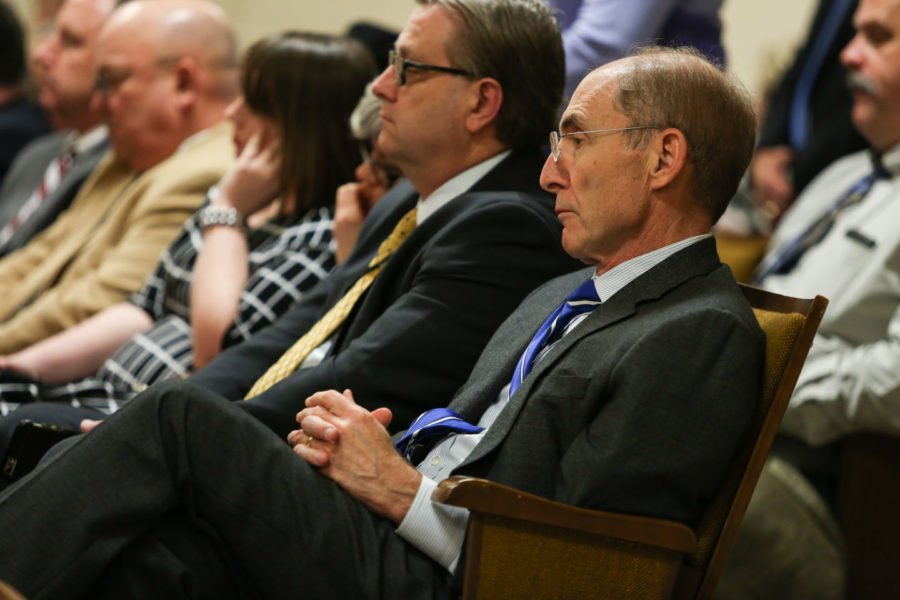University to sue Kentucky Kernel in effort to appeal Attorney General’s decision
August 8, 2016
UK announced its decision Monday to sue its independent student newspaper, the Kentucky Kernel, over requests for documents involving an associate professor accused of sexual harassment.
The lawsuit is the university’s way of appealing a recent ruling from the state Attorney General’s office. The ruling asked UK to release documents it previously withheld from the Kernel.
In a statement emailed to students, President Eli Capilouto announced UK will appeal multiple Attorney General decisions that came down in favor of the Kernel and the Lexington Herald-Leader.
Among its appeals is a lawsuit against the Kernel, which requested records of the UK’s investigation into the sexual harassment claims against associate professor James Harwood.
Harwood denied the claims, but resigned from UK under the agreement that he receive pay and benefits until Aug. 31.
UK is not suing for monetary damages. Filing a lawsuit in circuit court is the university’s only way to appeal the Attorney General’s decision.
These types of lawsuits are not uncommon between journalists and public institutions, though the Kernel and its staff has only been sued a handful of times in similar cases.
Then-editor-in-chief Will Wright asked for the records in April, but UK denied the request. Wright then appealed to the Attorney General’s office.
The Attorney General ruled UK should release the records, but should omit the names and personal identifiers of witnesses and of the complainant.
It is the Kernel’s policy and common practice of many newspapers to not publish the names of victims of sex crimes.
The circuit court can order UK to release the documents, or it can rule that the files should be kept undisclosed.
“In a handful of very specific cases, we are faced with the decision of whether transparency is more important than the need to protect the privacy and dignity of individual members of our community,” Capilouto wrote in the email. “It is not.”
He cited among the university’s reasons to deny the claim the responsibility to protect the privacy and well-being of victims of violence and traumatic events. Therefore he said the university would never release the names of said victims.
The office of Attorney General Andy Beshear released the decision that the records in question “were not shown to be protected by exemptions and privileges” of Kentucky’s open records law. The Attorney General decision also says UK refused to allow the office to inspect the documents.
“This protection … also goes to protecting the identities of those accused of wrong-doing,” the email said. “We will not grant access to private and preliminary information—whether it involves a grade point average or a disciplinary file—concerning our students, faculty and staff.”
The Kernel has reached out to legal counsel to explore its options.
The lawsuit follows another appeal made by the university against the Herald-Leader, which claims UK violated the Open Meetings Act when it did not keep minutes of a business dinner meeting of the UK Board of Trustees.
“The information sought by the Herald-Leader involves the university’s management of millions of dollars, and information presented to the board at a public meeting,” the Herald-Leader’s Editor-in-Chief Peter Baniak said. “We believe this is exactly the kind of information that should be made available to the public under the state’s Open Meetings and Open Records Laws.”
They are represented by Lexington law firm Tom Miller of Miller, Griffin & Marks.
Editor’s note: This article has been updated to accurately reflect the accusations of sexual harassment and the university’s available courses of action following the Attorney General’s decision.




















































































































































